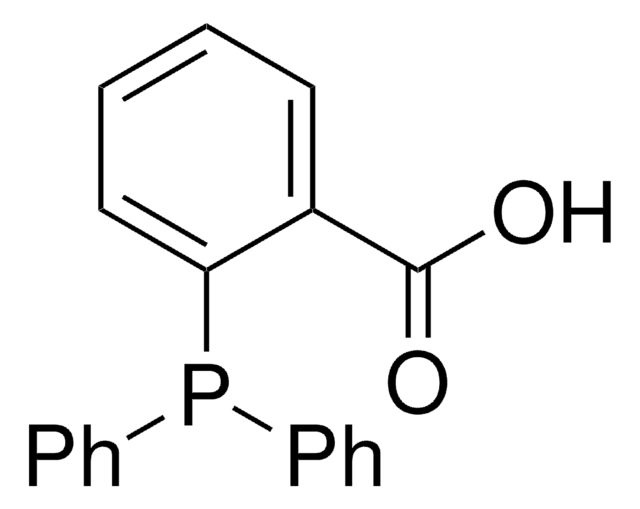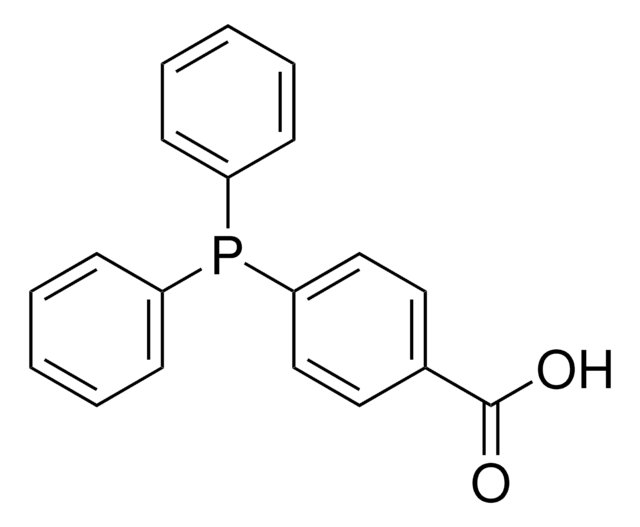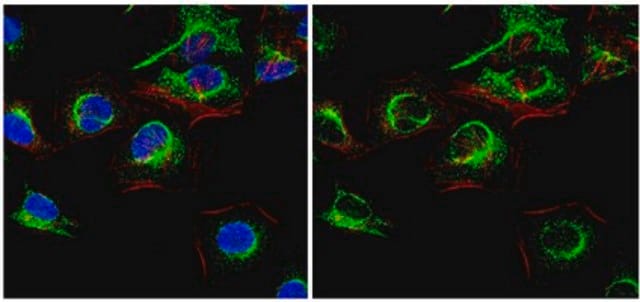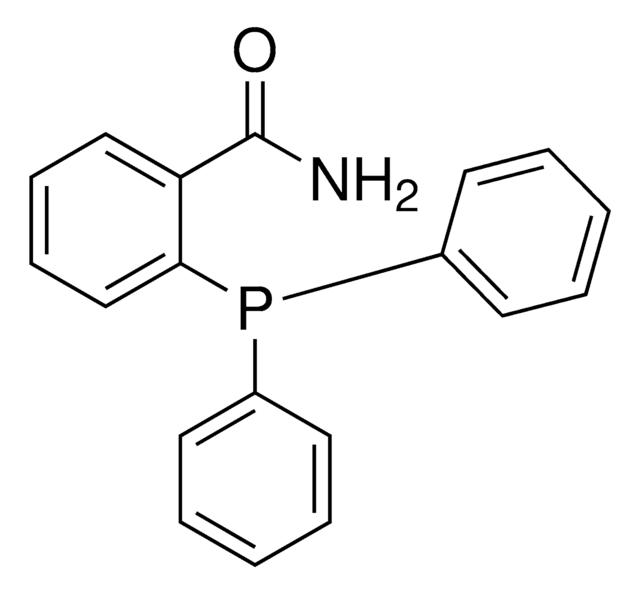679011
2-(Diphenylphosphino)terephthalic acid 1-methyl 4-pentafluorophenyl diester
97%
Synonym(s):
1-Methyl-4-(pentafluorophenyl)-2-(diphenylphosphino)-1,4-benzenedicarboxylate
About This Item
Recommended Products
Quality Level
Assay
97%
form
solid
reaction suitability
reaction type: click chemistry
mp
109-111 °C
storage temp.
−20°C
SMILES string
COC(=O)c1ccc(cc1P(c2ccccc2)c3ccccc3)C(=O)Oc4c(F)c(F)c(F)c(F)c4F
InChI
1S/C27H16F5O4P/c1-35-27(34)18-13-12-15(26(33)36-25-23(31)21(29)20(28)22(30)24(25)32)14-19(18)37(16-8-4-2-5-9-16)17-10-6-3-7-11-17/h2-14H,1H3
InChI key
OURNVXDJALDDIG-UHFFFAOYSA-N
Application
- Staudinger ligation reagent for the conjugation of amine and azide containing compounds or biomolecules.
- The amine functionalized molecule first reacts with the phosphine through the activated pentafluorophenyl ester.The azide-molecule is then reacted with the newly labeled phosphine to form the iminophosphorane, and the aza-ylide is subsequently captured by the methyl ester to yield the covalent conjugated product.

The Staudinger Ligation: A High-Yield, Chemoselective, and Mild Synthetic Method
related product
Storage Class Code
11 - Combustible Solids
WGK
WGK 3
Flash Point(F)
Not applicable
Flash Point(C)
Not applicable
Choose from one of the most recent versions:
Certificates of Analysis (COA)
Don't see the Right Version?
If you require a particular version, you can look up a specific certificate by the Lot or Batch number.
Already Own This Product?
Find documentation for the products that you have recently purchased in the Document Library.
Our team of scientists has experience in all areas of research including Life Science, Material Science, Chemical Synthesis, Chromatography, Analytical and many others.
Contact Technical Service








